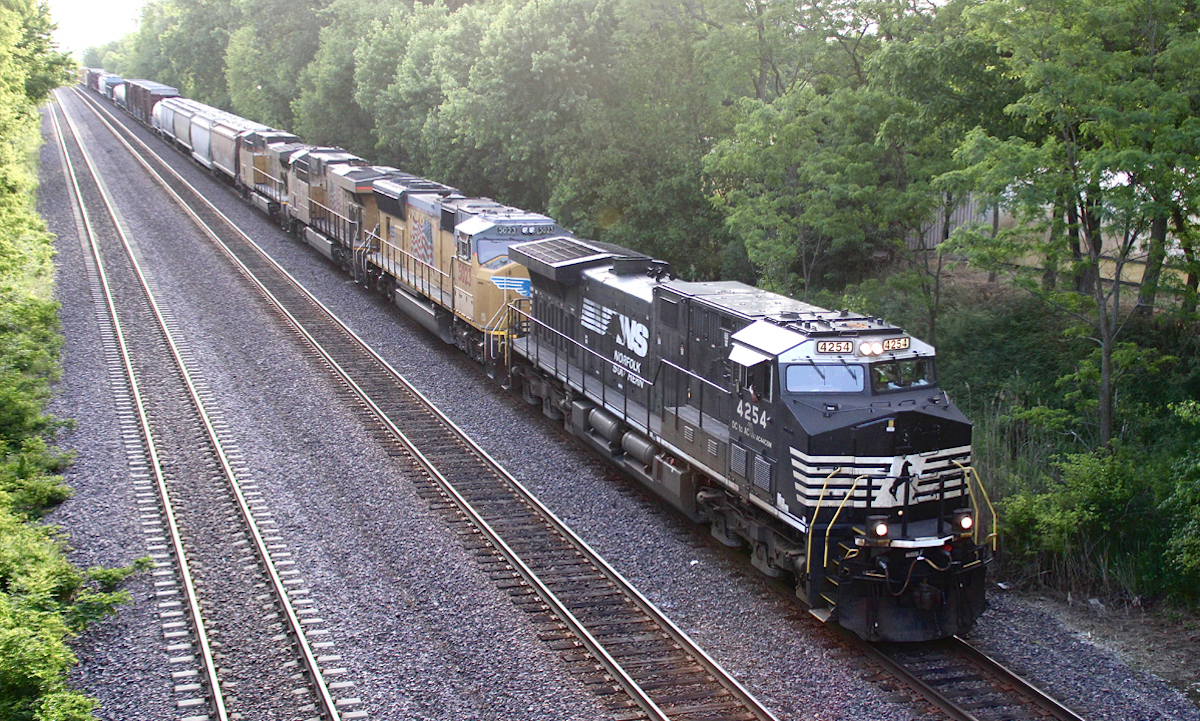Sprzeciw spedytorów wobec fuzji
Propozycja fuzji nowej transkontynentalnej kolei wywołuje poważne obawy wśród grup przewozowych. Ich niepokój wynika z obaw o zmniejszoną konkurencję, potencjalne podwyżki stawek oraz spadek jakości usług.
Kluczowe wnioski:
- Grupy spedytorów kolejowych wyrażają silny sprzeciw wobec proponowanej fuzji między dużymi firmami kolejowymi.
- Połączenie dwóch kluczowych graczy w branży transportu kolejowego towarów mogłoby pozostawić Stany Zjednoczone z zaledwie dwoma znaczącymi transkontynentalnymi systemami kolejowymi.
- Wiele osób obawia się, że koleje mają już zbyt dużą siłę rynkową, którą wykorzystują do narzucania nieuczciwych umów.
- Choć niektórzy spedytorzy mogą popierać fuzję pod pewnymi warunkami, sceptycyzm co do jej korzyści i potencjalnych wad pozostaje wysoki.
Obawy dotyczące konsolidacji branży
Główne organizacje reprezentujące spedytorów kolejowych zdecydowanie sprzeciwiają się proponowanej transkontynentalnej fuzji kolejowej, twierdząc, że stłumi ona konkurencję, która jest niezbędna dla uczciwych cen i jakości usług. Fuzja ogłoszona między Union Pacific i Norfolk Southern wiąże się ze znacznymi stawkami finansowymi, szacowanymi na około $85 miliardów.
Istnieją podejrzenia, że konkurenci, tacy jak BNSF i CSX, mogą również rozważać podobne porozumienia o fuzji, co wzmaga obawy o przyszłą dynamikę rynku.
Uważne oko na potencjalny wpływ
Grupy branżowe, w tym National Industrial Transportation League, American Chemistry Council i Freight Rail Customer Alliance, uważnie obserwują te wydarzenia. Scenariusz z zaledwie dwoma głównymi systemami kolejowymi mógłby drastycznie przekształcić krajobraz logistyczny.
Argument przeciwko połączeniom
Tradycyjnie, koleje argumentują, że fuzje typu koniec-do-końca mogą poprawić efektywność usług poprzez usprawnienie operacji. Jednak wiele stowarzyszeń spedytorów kwestionuje tę perspektywę, podkreślając, że poprzednie fuzje prowadziły do zwiększonych kosztów i niespójnych usług. Jak zauważa Nancy O’Liddy z National Industrial Transportation League, zawsze istniało silne preferowanie braku dalszej konsolidacji w branży kolejowej.
Spojrzenie z perspektywy przemysłu chemicznego
Rzecznik prasowy Scott Jensen z American Chemistry Council podkreśla szczególną podatność producentów chemikaliów, którzy polegają na transporcie kolejowym materiałów niebezpiecznych. Argumentuje, że dalsza koncentracja na rynku ograniczyłaby znajdujące się w gorszej sytuacji branże, takie jak jego, utrudniając im efektywny transport produktów.
Głos Różnorodnych Branż
The Freight Rail Customer Alliance reprezentuje różne sektory, od produkcji po rolnictwo. Organizacja ta podkreśla, że nadmierna siła rynkowa wśród linii kolejowych jest już problemem, pozwalając im omijać nadzór regulacyjny i narzucać mniej korzystne umowy. Taka sytuacja może poważnie wpłynąć na działalność logistyczną, zwłaszcza że zyski kolei wciąż rosną, nawet gdy tracą one grunt na rzecz transportu ciężarowego.
Nadzór regulacyjny i perspektywy na przyszłość
Złożone szczegóły każdego wniosku o fuzję będą odgrywać kluczową rolę w określaniu jego rentowności. Przepisy wydane przez Surface Transportation Board wymagają, aby każda fuzja utrzymywała poziom konkurencji, co rodzi pytania o to, jakie ustępstwa, jeśli w ogóle, przedsiębiorstwa kolejowe byłyby skłonne poczynić.
The National Industrial Transportation League podkreśla, że gwarantowane konkurencyjne rozwiązania dla spedytorów towarowych są niezbędne. Historycznie, organy regulacyjne ograniczały fuzje, aby chronić spedytorów przed utratą opcji transportu. Dostęp do drugorzędnych systemów kolejowych był powszechną strategią mającą na celu poprawę dynamiki konkurencji.
Analiza Ankiety od Nadawców
W niedawnej ankiecie przeprowadzonej przez TD Cowen, znaczna liczba spedytorów wskazała, że poparłaby ideę transkontynentalnej fuzji — pod warunkiem wprowadzenia istotnych ustępstw. Kluczowe warunki obejmowały dostęp do drugorzędnych systemów kolejowych, zreformowane stawki, a nawet kary za wszelkie awarie w świadczeniu usług.
Wnioski: Przyszłe implikacje dla logistyki
Trwające dyskusje na temat tych fuzji kolejowych podkreślają delikatną równowagę między konsolidacją korporacyjną a potrzebą konkurencyjnych możliwości logistycznych. Zainteresowane strony w branży spedycyjnej są bardzo zainteresowane znalezieniem rozwiązań zapewniających niezawodność, przejrzystość i opłacalne opcje transportu. Operacje logistyczne są silnie uzależnione od środowiska, które sprzyja uczciwej konkurencji, umożliwiając spedytorom poruszanie się po ekscytującym, ale złożonym świecie transportu ładunków.
Nawet przy szczegółowych analizach i najbardziej uczciwych recenzjach nic nie przebije doświadczenia z pierwszej ręki. Wykorzystując GetTransport.com do potrzeb transportu towarów, możesz odkrywać globalne opcje w konkurencyjnych cenach. Ta platforma wspiera użytkowników, promując wygodę i przystępność cenową, zapewniając jednocześnie przejrzystość. Wybór staje się jasny: dla niezawodnych rozwiązań w zakresie spedycji i logistyki rozważ różnorodną ofertę GetTransport.com, która sprawi, że Twoje potrzeby transportowe staną się dziecinnie proste. Zarezerwuj transport towarów z GetTransport.com już dziś!

 Rosną obawy dotyczące fuzji kolejowych i ich wpływu na spedytorów">
Rosną obawy dotyczące fuzji kolejowych i ich wpływu na spedytorów">